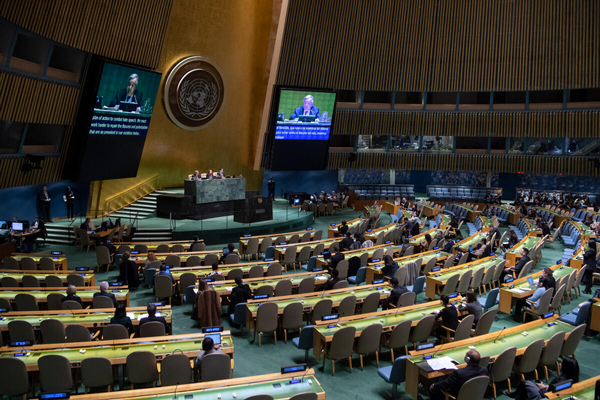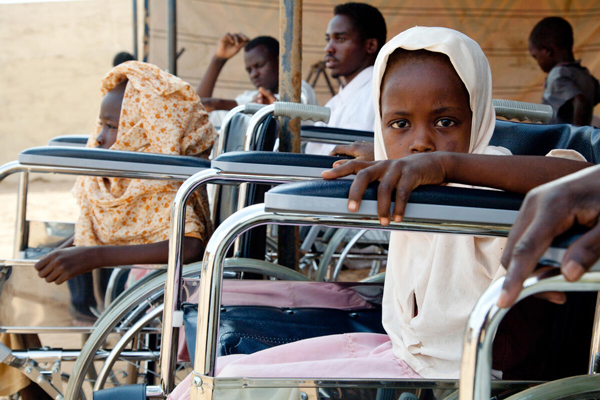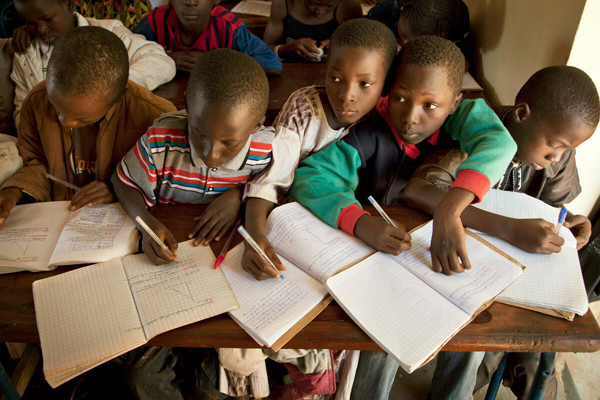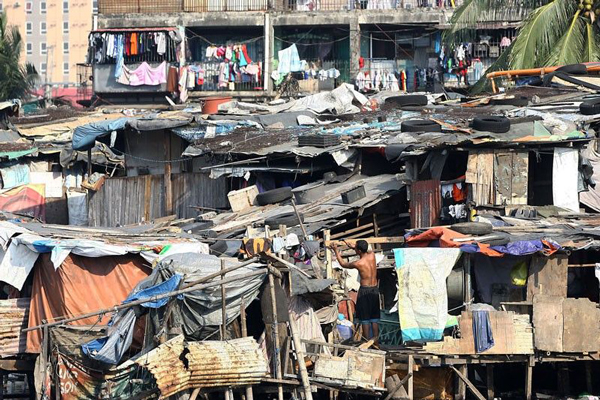Diploma Policy
Master’s Degree Program
(1) Educational Goals: Expected Features of the Graduates
The Graduate School of International Development (GSID) aims to cultivate researchers and professionals who—using social science theories and methods—can contribute to policy planning and implementation through interdisciplinary and empirical analyses of the diverse development issues faced by the international community, governments, local communities, and citizens. In addition, GSID aims to train business professionals, in the “Special Program for Global Business Professionals,” who can contribute to international cooperation and the responsible development of Japanese overseas business.
- By earning the prescribed credits, students acquire basic knowledge related to international development cooperation and gain expertise regarding specific research subjects.
- By presenting empirical data within the framework of international discussion, students are able to clearly explain their academic views to others both in Japan and abroad.
- Students acquire an enduring ability to design strategies for solving the challenges of local and global society.
(2) Required Conditions for Graduation
Master’s students must remain enrolled at least two years (one year in the case of Special Program for Global Business Professionals) in principle, acquire a minimum of 30 credits as regulated by GSID, and pass the examination and evaluation of the master’s thesis following the necessary guidance from academic advisors.
(3) Evaluation Criteria of Master’s Thesis (MA)
MA theses are evaluated upon the following criteria: professional knowledge in the studies of international development; the adequate review of previous literature; logical consistency between the problem statement and conclusion; sufficient evidence and materials to draw conclusion; the originality of argument; precision in the description and definition of concepts; and appropriate layout as an academic work, among others. Also, students must respond with sound logic about the MA thesis in their oral examination and explain the thesis in a convincing way. The result of the evaluation is reported in a GSID Faculty meeting, which decides the approval or disapproval of the thesis.
Doctoral Degree Program
(1) Educational Goals: Expected Features of the Graduates
The Graduate School of International Development (GSID) aims to cultivate researchers and professionals who—using social science theories and methods—can contribute to policy planning and implementation through interdisciplinary and empirical analyses of the diverse development issues faced by the international community, governments, local communities, and citizens.
- By earning the prescribed credits, students acquire advanced knowledge, which is developed further from basic knowledge related to all fields of international development cooperation and gain highly professional expertise regarding specific research subjects.
- By presenting empirically-grounded and original research outcomes positioned in the systematic framework of international discussion, students are able to express their academic views to others both in international platforms.
- As a core professional in the states or international organizations, students can be trusted to make an innovative influence on the policies of the international community or the states.
(2) Required Conditions for Graduation
Students must be enrolled on the doctoral program for at least three years and acquire at least six credits according to the course guidelines specified by the School. Having received the necessary research supervision, students must also pass a final examination and successfully defend their doctoral dissertation.
(3) Evaluation Criteria of Doctoral Dissertations
Doctoral dissertations are examined on the basis of the extent to which they demonstrate a student’s specialized knowledge in the field of international development, their skill in presenting the findings of existing research, their level of logical consistency and expertise in establishing themes and formulating conclusions, their skill in compiling and creating a convincing argument using supporting materials when drawing conclusions, and their use of an appropriate written style for an academic dissertation. Further, dissertations are evaluated also in terms of originality, the accuracy of conceptual expressions and definitions, the extent to which the research subject and results are realistic and valid, and usefulness and policy implications. Students who pass the dissertation examination will take a final oral examination, which is conducted publicly. In this examination, the student will answer questions on a wide range of topics related to the field of international development studies, centering on the content of their doctoral dissertation. The results of the main examination will be reported to the graduate school Faculty Council, which will discuss the content of the report and decide whether the student passes the degree examination.
Degree Programs
| Department | Degree Programs | |
|---|---|---|
| Department of International Development and Cooperation | Economic Development Policy and Management | Global Leader Career Course * Students are selected from 5 programs. |
| Peace and Governance | ||
| Inclusive Society and State | ||
| Education and Human Resource Development | ||
| Poverty and Social Policy | ||
Program in Economic Development Policy and Management

The EDP&M program deals with the issues/topics pertaining to economic development that constitute the core of socio-economic development. This program trains students to become career development economists or otherwise experts in economic development who can contribute to poverty reduction through economic growth via increased income and employment creation. Facing the multi-dimensional development problems of the 21st century, development economists who are well versed in New Political Economy―a fusion of politics, economics, and culture―are needed. Economists should consider both traditional and new agents in development, socio-economic institutions and embedded culture in a comprehensive manner so as to effectively situate economic development in a broad context of socio-economic development. With the former Rural and Regional Development Management Program merging into this program starting in April 2018, the program contains rural/agricultural development as one of the key focal areas. In addition to the basic subjects for economic development such as Development Economics, Development Macroeconomics, Development Microeconomics and Statistics/Econometrics, the EDP&M program offers the following focal areas while preparing students for their professional careers: Poverty-Growth-Inequality Triangle, Globalization and Development, Rural Economics/Development, Industrial Development, Tourism Economics/Development, Development Finance and Public Financial Management, among other related areas. In pursuing teaching/research in these focal areas, the program stresses the importance of creating an optimal mix of ideas/concepts, theoretical frameworks, case studies, field works, and rigorous qualitative/quantitative analyses for us to support evidence-based policy making and execution. The EDP&M program also possesses a global network of development policy makers, practitioners and researchers consisting of our program alumni and collaborating researchers/practitioners, for us to tap into their accumulated knowledge/experience in managing economic development.
Program in Peace and Governance

The fact that the international community does not have any central government regulating actors, actions and their relations requires a study on how to establish, maintain and activate governance to tackle with global agenda such as peace, human security and development. This program will place main focus on peace issues among contemporary international challenges in the world. It deals with root causes of conflicts, reconstruction assistance to post-conflict societies, and other issues such as refugees and human rights. However, it will not lose sight of the governance system in the international and domestic context studying the changing circumstances of the international society. It offers as main subjects: “Peacebuilding,” “Security Studies,” “Global Governance,” “International Politics,” “the Law of the United Nations,” “International Cooperation Law,” “International Economic Law” and “Multinational Corporations and International Law.”
Program in Inclusive Society and State

The Inclusive Society and State Program aims to produce professionals who comprehend the changing roles of state and civil society in the twenty first century and contribute to uplift lives of the marginalized people to realize fair, open and inclusive society and state. The concept of “inclusive” signifies the norm that development and growth must be fair and open to anyone. Contrary to the ideal, however, many people have been marginalized or excluded by the existing social order and legal framework for unjustifiable reasons such as class, gender, sexuality, ethnicity, race, religion and so on. On the other hand, those people and voluntary organizations have fought to improve their situations in search of better society without inequality and injustice. This program trains students to critically and deeply analyze such dynamic processes of dominance, resistance and cooperation over construction of better social order, legal frameworks and state policies, with the interdisciplinary perspectives which includes law, political science, sociology, anthropology and history.
Program in Education and Human Resource Development

This program deals with issues related to educational development at the global, national, and local levels. Specifically, the classes will provide students with perspectives on analyzing the latest discussion on Sustainable Development Goals (SDGs) and other education-related global initiatives; theories on education, human resource development, and international development; and issues on specific aspects of education in and outside of schools. The master’s program aims at developing professionals who will be involved in educational and human resource development practices in developing countries, the global development community, and in Japan. The doctoral program will train highly-level specialists at international development organizations as well as researchers at universities and research organizations within and outside of Japan.
Program in Poverty and Social Policy

This program is intended to train future development professionals in understanding global debates concerning poverty and development. Poverty in the context of international development has conventionally been associated with rural areas of developing countries. In more recent years, however, poverty is increasingly prevalent in urban areas of developing countries as well as in developed countries. As the context of poverty changes, our understanding of policy response to it should also change. The program focuses on poverty-related issues facing different peoples and societies around the globe to inform policy debates in international development studies. It also examines the historical evolution of development theory and practice and explores new frontiers of development.
